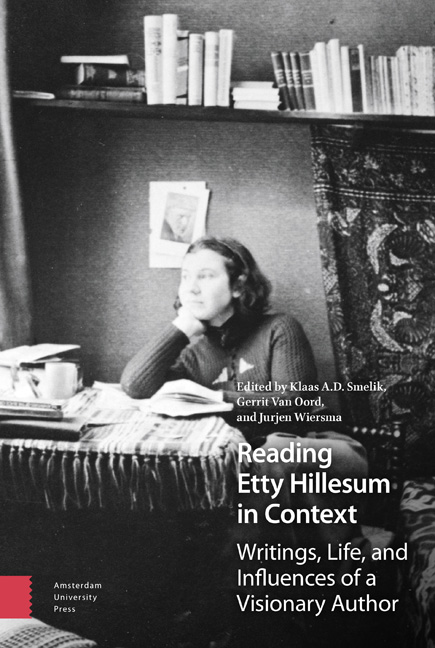22 - Bright Orange and Crimson: How a Dutch Dissertation on Etty Hillesum Was Coloured by French Philosophy
Published online by Cambridge University Press: 06 January 2021
Summary
Abstract
In her contribution, De Costa explains the process involved in creating her dissertation on Etty Hillesum. She elucidates how her thinking about Hillesum was formed and determined by the perspectives of women's studies and postmodernism, and fed by Francophone philosophers like François Lyotard and Hélène Cixous. According to the author, these perspectives allowed her, and in turn allow a broad audience, to relate to the complexity and ambiguity of Etty Hillesum's work.
Keywords: women's studies, postmodernism, écriture feminine, François Lyotard, Hélène Cixous, Auschwitz, authenticity, Etty Hillesum
Western thought in the last decades of the previous century was fuelled by new movements such as postmodernism and women's studies. In this spirit emerged the first PhD dissertation about Etty Hillesum. Her life and work, considered from core topics such as being a woman in a patriarchal culture, the complexity of life and the “art of living,” appear rich in paradoxes, and that is what makes her work so intriguing and timeless.
In the middle of the war, Etty Hillesum suddenly remembers that as a teenager she made a trip to Paris. On 24 April 1942, she writes about it in her diary,
[…] on the train to Paris. Excited by the rhythm of the train, by the many impressions – there I sat with a miserable little notepad clutched in my fingers, and again needed to write. And I wrote something like: “Grey, dark, black but inside it was bright orange and crimson.” And then, in that hurtling train, I also wrote: “It is certain that the world dies a separate death for each of us, and yet the world still exists. How odd.”
Dark and light, death and life. As an adolescent, the seed, which would later come to full blossom, was apparently already present: her special experience and acceptance of life in all its facets, in all its contradictions. In her first diaries, she educates herself in this respect. On Wednesday, 13 August 1941, she says to herself,
The many contradictions have to be accepted. You are trying hard to weld everything into a whole, to simplify things one way or another in your mind because that would simplify your life, but life happens to consist of contradictions and all of these must be accepted as part of life, and one must not stress one at the expense of the other.
- Type
- Chapter
- Information
- Reading Etty Hillesum in ContextWritings, Life, and Influences of a Visionary Author, pp. 431 - 444Publisher: Amsterdam University PressPrint publication year: 2018



